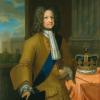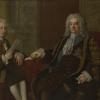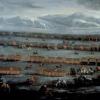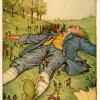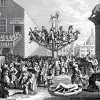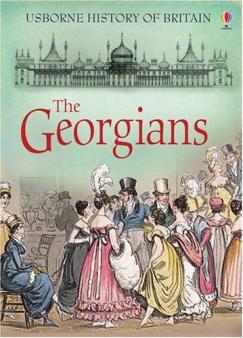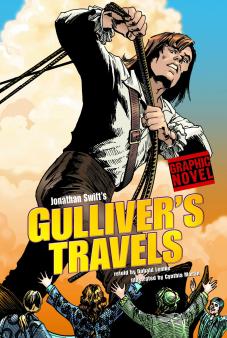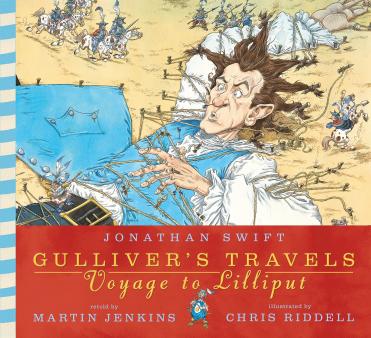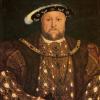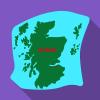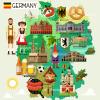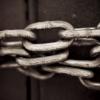King George I
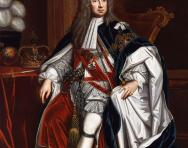
The first of the Hanoverian Monarchs, George helped to maintain the Protestant Church in the United Kingdom.
During his reign rebellions by the Jacobites, who wished to restore the Catholic Stuart dynasty to the throne, were defeated.
Although keen to protect his claim to the throne George remained more concerned with events in Hanover, Germany, where he ruled as Elector. This allowed politician Sir Robert Walpole to play a large part in government, becoming effectively the first Prime Minister.
Top 10 facts
- Queen Anne had seventeen children, but none survived her. She was a Protestant and head of the Anglican Church.
- The Act of Settlement of 1701 had provided that in the event of Queen Anne dying without an heir, the English and Irish crowns should pass to the Electress Sophia of Hanover and her protestant heirs. In 1708 the Act of Union joined the Crowns of England and Scotland.
- James III, the heir to the Stuart dynasty, known as the Pretender, refused to abandon his Catholic faith. His supporters were called the Jacobites and they wanted him to become King.
- Georg Ludwig, Elector of Hanover, was the first protestant heir to the throne. He spoke German as a first language. George I remained keenly interested in the fortunes of Hanover during his reign as Britain's king and used the English navy to support Hanover’s foreign policy.
- In 1715 the Jacobites staged a rebellion against the new Hanoverian succession. A further brief uprising involving Jacobites and Spanish troops in 1719 ended with a victory for the British Government.
- In 1720 there was a severe financial crisis known as the South Sea Bubble. Many people lost a lot of money and were very angry as a result.
- In 1721 only 5% of the population could vote. There were two political parties, the Whigs and the Tories. George I favoured the Whigs.
- Sir Robert Walpole’s handling of the South Sea crisis enabled him to strengthen his position as Prime Minister.
- Many contemporaries believed they were living through a time of moral decay where greed and vulgar behaviour were rewarded and sickness and crime were rife. The press and theatre were particularly critical of the mismanagement of the ruling classes.
- Jonathan Swift's Gulliver’s Travels was a political satire of the Whig establishment.
Timeline
- 1714Death of Queen Anne. George I becomes King

- 1715The Jacobite rebellion fails
- 1719Daniel Defoe publishes Robinson Crusoe

- 1719Battle of Glen Shiel
- 1720South Sea Bubble
- 1721Walpole ministry
- 1726Jonathan Swift Gulliver’s Travels published

- 1727Death of George I, accession of George II



Start your child on a learning programme today!
- Weekly English, maths & science worksheets direct to your inbox
- Follows the National Curriculum
- Keeps your child's learning on track
Did you know?
- Sir Robert Walpole was Prime Minister for over twenty years making him the longest serving British Prime Minister ever.
- There were over fifty claimants to the English Crown who were more closely related to the preceding Stuart dynasty than George, but none were Protestant.
- At first George I spoke very little English and sometimes conversed with his ministers in German or French.
- In 1694 George imprisoned his wife Sophia Dorothea from whom he was estranged and refused to let his son, the young Prince George Augustus, see her. He had a very poor relationship with Prince George and his wife Princess Caroline.
- Gulliver’s Travels has never been out of print since its first publication.
Browse the gallery below and see if you can spot the following:
- Portrait of George I
- Sir Robert Walpole (right) with his secretary Henry Bilson-Legge (Left)
- The battle of Sheriffmuir 1715
- Gulliver tied down by the Lilliputians
- Investors taken for a ride- the South Sea Bubble
Gallery
About
George I claim to the throne was established by the 1701 Act of Settlement and was based upon his Protestant faith. Some of the Tory party would have preferred a Jacobite claimant to the throne and George therefore favoured the Whig party.
His support of the Whigs and the skill of Sir Robert Walpole who became effectively the country’s first Prime Minister meant that the Tories were to be out of power for fifty years.
At 54, with only a limited grasp of English, George appeared a distant figure to his new subjects in Britain. He was more interested in foreign than domestic affairs, particularly when they involved Hanover, which he visited five times during his reign. This meant that Britian was ruled more and more, on an everyday basis, by his cabinet under the skilful leadership of Sir Robert Walpole.
The collapse of the South Sea Bubble led many early Georgians to believe they were living through a period when crime and corruption were rife. Walpole was eventually able to calm the situation and under his guidance the country gradually became a more stable, prosperous and peaceful place to live. This meant that Hanoverian Succession was strengthened, although the power of the monarchy as an institution declined.
Related Videos
Just for fun...
- Sing along to the Horrible Histories song, The Four Georges - Born 2 Rule, about Kings George IV, III, II and I
- Listen to a children's podcast from Fun Radio about houses built in Georgian times
- Design your own fantastic and crazy 18th-century wig
- Find out about food in Georgian times, and learn how to make traditional Georgian foods (whipt syllabub)
- The Kids Rule! Guide to Georgian England is a brilliant English Heritage comic about life in Georgian times which you can read online
- Read about health in Georgian times
- Listen to beautiful harpsichord music from the Georgian era
- Can you become a master of your trade in Georgian times? Start the interactive Victoria & Albert Museum game Terrible Trades as an apprentice and test your skills
Find out more
Look through a Georgian Britain Timeline for kids
Download the Hanover family tree, with George I at the very top
Georgian era facts for kids from Kiddle Encyclopedia
Explore Georgian newspapers, books, illustrations and posters
Read a biography of George I
See pictures of beautiful Georgian architecture
Discover facts about transport in Georgian times, from roads to canals and trains
Find out how to be a king by reading the advice given by Frederick, Prince of Wales to his son, the future George III, in a letter of 1749. Frederick credits his ideas to his grandfather, George I
Why Georgian Britain has been called "the age of modernity"
Watch a video about life at No1 Royal Crescent, Bath, during the Georgian period
Best children's books about Georgian life
See for yourself
Visit Houghton Hall in Norfolk, home of Sir Robert Walpole
Look inside a Georgian house to see furniture and objects
Take a virtual tour around a Georgian drawing room
Also see

Give your child a headstart
- FREE articles & expert information
- FREE resources & activities
- FREE homework help
